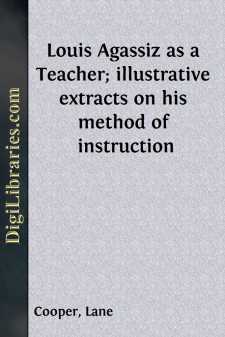Categories
- Antiques & Collectibles 13
- Architecture 36
- Art 48
- Bibles 22
- Biography & Autobiography 816
- Body, Mind & Spirit 145
- Business & Economics 28
- Children's Books 17
- Children's Fiction 14
- Computers 4
- Cooking 94
- Crafts & Hobbies 4
- Drama 346
- Education 58
- Family & Relationships 59
- Fiction 11834
- Foreign Language Study 3
- Games 19
- Gardening 17
- Health & Fitness 34
- History 1378
- House & Home 1
- Humor 147
- Juvenile Fiction 1873
- Juvenile Nonfiction 202
- Language Arts & Disciplines 89
- Law 16
- Literary Collections 686
- Literary Criticism 179
- Mathematics 13
- Medical 41
- Music 40
- Nature 179
- Non-Classifiable 1768
- Performing Arts 7
- Periodicals 1453
- Philosophy 66
- Photography 2
- Poetry 897
- Political Science 203
- Psychology 45
- Reference 154
- Religion 516
- Science 126
- Self-Help 85
- Social Science 82
- Sports & Recreation 34
- Study Aids 3
- Technology & Engineering 59
- Transportation 23
- Travel 463
- True Crime 29
Our website is made possible by displaying online advertisements to our visitors.
Please consider supporting us by disabling your ad blocker.
Louis Agassiz as a Teacher; illustrative extracts on his method of instruction
by: Lane Cooper
Description:
Excerpt
INTRODUCTORY NOTE
When the question was put to Agassiz, 'What do you regard as your greatest work?' he replied: 'I have taught men to observe.' And in the preamble to his will he described himself in three words as 'Louis Agassiz, Teacher.'
We have more than one reason to be interested in the form of instruction employed by so eminent a scientist as Agassiz. In the first place, it is much to be desired that those who concern themselves with pedagogy should give relatively less heed to the way in which subjects, abstractly considered, ought to be taught, and should pay more attention than I fear has been paid to the way in which great and successful teachers actually have taught their pupils. As in other fields of human endeavor, so in teaching: there is a portion of the art that cannot be taken over by one person from another, but there is a portion, and a larger one than at first sight may appear, that can be so taken over, and can be almost directly utilized. Nor is the possible utility of imitation diminished, but rather increased, when we contemplate the method of a teacher like Agassiz, whose mental operations had the simplicity of genius, and in whose habits of instruction the fundamentals of a right procedure become very obvious.
Yet there is a second main reason for our interest. Within recent years we have witnessed an extraordinary development in certain studies, which, though superficially different from those pursued by Agassiz, have an underlying bond of unity with them, but which are generally carried on without reference to principles governing the investigation of every organism and all organic life. I have in mind, particularly, the spread of literary and linguistic study in America during the last few decades, and the lack of a common standard of judgment among those who engage in such study. Most persons do not, in fact, discern the close, though not obvious, relation between investigation in biology or zoology and the observation and comparison of those organic forms which we call forms of literature and works of art. Yet the notion that a poem or a speech should possess the organic structure, as it were, of a living creature is basic in the thought of the great literary critics of all time. So Aristotle, a zoologist as well as a systematic student of literature, compares the essential structure of a tragedy to the form of an animal. And so Plato, in the Phaedrus, makes Socrates say: 'At any rate, you will allow that every discourse ought to be a living creature, having a body of its own, and a head and feet; there should be a middle, beginning, and end, adapted to one another and to the whole.' It would seem that to Plato an oration represents an organic idea in the mind of the human creator, the orator, just as a living animal represents a constructive idea in the mind of God. Now it happens that Agassiz, considered in his philosophical relations, was a Platonist, since he clearly believed that the forms of nature expressed the eternal ideas of a divine intelligence....


